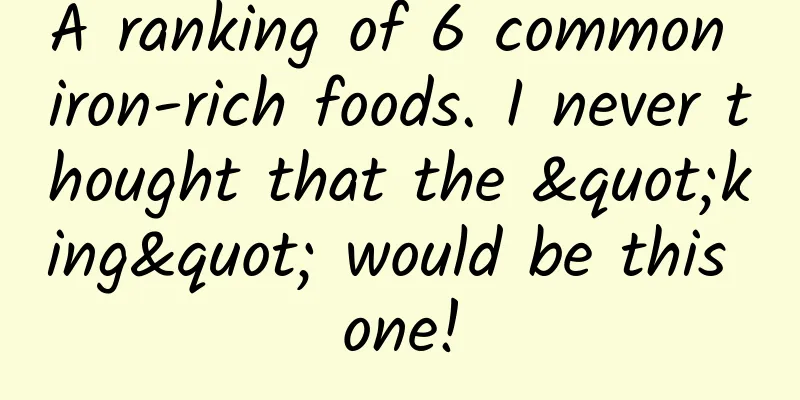What is the correct way to decoct Chinese medicine?

|
Decocting Chinese medicine is a science, from the decocting equipment to the time control and the control of the fire, including the order of boiling different herbs, all have certain requirements. Whether the medicine is decocted correctly will have a certain impact on the efficacy of the medicine soup. Of course, there are usually professional doctors in hospitals who can decoct medicine for you. If you are really not sure, you can take the decoction home and drink it after it is prepared in the hospital. Preparation before decocting Chinese medicine Utensils: If you want to do your work well, you must first sharpen your tools. It is best to use ceramic pots, casseroles or stainless steel utensils to decoct Chinese medicine. Avoid using iron, aluminum and other corrosive utensils. Soaking: Just like soaking soybeans before making soy milk, Chinese medicine should be soaked in cold water for 1-2 hours (except for medicine soaked in vinegar or wine), which takes 20 minutes before decocting it. Water: tap water can be used for decocting the medicine. The amount of water should be 1-3 cm above the surface of the medicinal materials. If there are too many medicinal materials or they are easy to absorb water, the amount can be increased appropriately. Pay attention to these matters when decocting Chinese medicine Heat: When decocting, first use high heat to boil the medicinal liquid, then use low heat to simmer slowly. Pot lid: Usually, you should keep the pot lid tightly closed when you start decocting the medicine. When the water boils, you can use two chopsticks to prop up the pot lid, leaving some gaps for the steam to escape. Some Chinese medicines contain volatile ingredients, such as mint, patchouli and other antipyretic drugs and precious medicinal materials such as American ginseng. Their active ingredients are easily released into the air during the decoction process, so they must be boiled with the lid covered. Operation: When decocting the medicine, pay attention to stirring the ingredients to ensure that the medicine liquid is fully decocted. Each dose of Chinese medicine is generally decocted twice, and the second time may be slightly shorter. Some medicines need to be treated differently, such as decocting first, taking it later, or taking it with water, etc. The Chinese medicine pharmacist will explain this when dispensing the medicine. Time: The length of time it takes to boil the medicine directly affects its efficacy. The decoction time of Chinese medicine starts from the time the medicine liquid boils. Generally, Chinese medicine for treating colds and other external diseases only needs to be boiled for 10-15 minutes, tonic Chinese medicine needs to be boiled for 40-60 minutes, and the rest of the Chinese medicine only needs to be boiled for 20-25 minutes. Reheating: To save time, many people will prepare several days' worth of medicine at one time. When reheating the medicine, it is generally not necessary to boil it, as long as it reaches the temperature of warm drinking water. Usually use a low fire, and the medicine liquid will just boil, then let it cool down before drinking. It should also be noted that it is generally not recommended to use a microwave oven to heat traditional Chinese medicine. The ingredients of traditional Chinese medicine are very complex. When heating it in a microwave oven, the heat generation process may cause the medicinal materials to be destroyed at the molecular level, causing them to lose some of their effectiveness. It is best to put the decoctions decocted in the hospital and sealed in plastic bags into a container and then pour in hot water to heat them. Storage: When storing, place it in a sealed container and place it in a cool place or refrigerator. The former can be stored for about 2 days, and the latter can generally be stored for about 5 days. |
<<: What are the functions and effects of Scutellaria baicalensis?
>>: What are the cooking methods and effects of motherwort?
Recommend
If a flamingo eats blue food, will it turn blue?
In the colorful natural world, many mysteries of ...
Following the "Three Thousand Miles of Chang'an", uncovering the splendid cultural heritage of the Three Gorges
"Chang'an 30,000 Miles" has recentl...
What are the effects and functions of white peony
Traditional Chinese medicine is a relatively trad...
What are the effects and functions of fossil grass?
If we talk about which plant is more tenacious, f...
From the streets to the Olympics, skateboarding should be seen!
Review expert: Peng Guoqiu, deputy chief physicia...
The efficacy and function of kidney grass
Kidney grass is a traditional Chinese medicine. T...
How to keep the oil flowing? Build a "highway" for the oil to flow!
"Shale is very dense, and oil cannot be extr...
What are the effects of Panlongcao?
Traditional Chinese medicine has been very famous...
What are the Chinese medicinal herbs for moistening the intestines and relieving constipation?
Many people add Chinese herbal medicines to thems...
Is copper coin grass poisonous?
As people in modern society pay more and more att...
Can children eat Panax notoginseng?
As a kind of traditional Chinese medicine, Panax ...
Medicinal value of leeches
When it comes to leeches, I believe many people a...
Influenza is prevalent in autumn and winter. How to distinguish between COVID-19, the common cold and influenza?
On November 5, at the press conference of the Joi...









